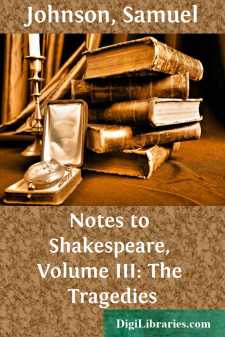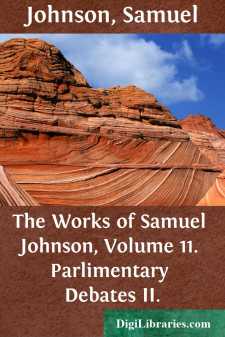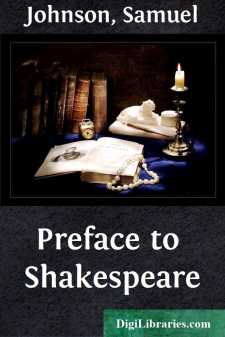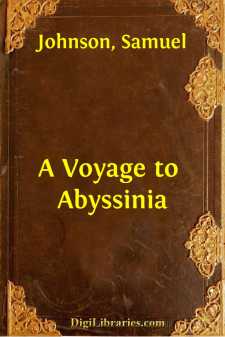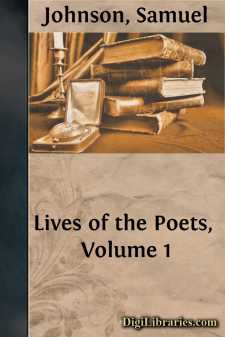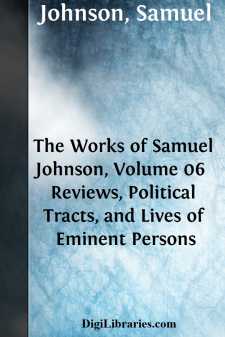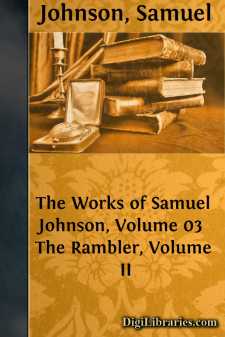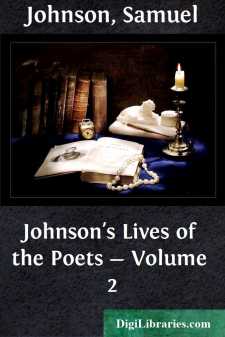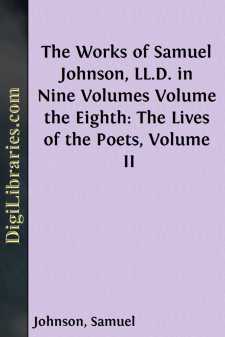Categories
- Antiques & Collectibles 13
- Architecture 36
- Art 48
- Bibles 22
- Biography & Autobiography 815
- Body, Mind & Spirit 144
- Business & Economics 28
- Children's Books 18
- Children's Fiction 14
- Computers 4
- Cooking 94
- Crafts & Hobbies 4
- Drama 346
- Education 58
- Family & Relationships 59
- Fiction 11829
- Games 19
- Gardening 17
- Health & Fitness 34
- History 1378
- House & Home 1
- Humor 147
- Juvenile Fiction 1873
- Juvenile Nonfiction 202
- Language Arts & Disciplines 89
- Law 16
- Literary Collections 686
- Literary Criticism 179
- Mathematics 13
- Medical 41
- Music 40
- Nature 179
- Non-Classifiable 1768
- Performing Arts 7
- Periodicals 1453
- Philosophy 65
- Photography 2
- Poetry 896
- Political Science 203
- Psychology 44
- Reference 154
- Religion 515
- Science 126
- Self-Help 85
- Social Science 82
- Sports & Recreation 34
- Study Aids 3
- Technology & Engineering 59
- Transportation 23
- Travel 463
- True Crime 29
Sort by:
by:
Samuel Johnson
TRAGEDIES Vol. IV (392) Most of the notes which the present editor has subjoined to this play were published by him in a small pamphlet in 1745. I.i (393,*) Enter three Witches] In order to make a true estimate of the abilities and merit of a writer, it it always necessary to examine the genius of his age, and the opinions of his contemporaries. A poet who should now make the whole action of his...
more...
by:
Samuel Johnson
IN PARLIAMENT.HOUSE OF COMMONS, DECEMBER 8, 1741.DEBATE ON THE ADDRESS.The commons who attended in the house of lords, having heard his majesty's speech to both houses, returned to their own house, where a copy of it being this day read to them by the speaker, Mr. H.A. HERBERT moved for an address, in words to this effect: Sir, to address the throne on the present occasion, is a custom which, as...
more...
by:
Samuel Johnson
PREFACE TO SHAKESPEARE That praises are without reason lavished on the dead, and that the honours due only to excellence are paid to antiquity, is a complaint likely to be always continued by those, who, being able to add nothing to truth, hope for eminence from the heresies of paradox; or those, who, being forced by disappointment upon consolatory expedients, are willing to hope from posterity what...
more...
by:
Samuel Johnson
INTRODUCTION. Jeronimo Lobo was born in Lisbon in the year 1593. He entered the Order of the Jesuits at the age of sixteen. After passing through the studies by which Jesuits were trained for missionary work, which included special attention to the arts of speaking and writing, Father Lobo was sent as a missionary to India at the age of twenty-eight, in the year 1621. He reached Goa, as his book...
more...
by:
Samuel Johnson
Such was the simple and unpretending advertisement that announced the Lives of the English Poets; a work that gave to the British nation a new style of biography. Johnson's decided taste for this species of writing, and his familiarity with the works of those whose lives he has recorded, peculiarly fitted him for the task; but it has been denounced by some as dogmatical, and even morose; minute...
more...
by:
Samuel Johnson
REVIEWS. LETTER ON DU HALDE'S HISTORY OF CHINA, 1738. There are few nations in the world more talked of, or less known, than the Chinese. The confused and imperfect account which travellers have given of their grandeur, their sciences, and their policy, have, hitherto, excited admiration, but have not been sufficient to satisfy even a superficial curiosity. I, therefore, return you my thanks...
more...
by:
Samuel Johnson
THE RAMBLER. No. 106. SATURDAY, MARCH 23, 1751. Opinionum commenta delet dies, naturæ judicia Confirmat. CICERO, vi. Att. 1. Time obliterates the fictions of opinion, and confirms the decisions of nature. It is necessary to the success of flattery, that it be accommodated to particular circumstances or characters, and enter the heart on that side where the passions stand ready to receive...
more...
by:
Samuel Johnson
INTRODUCTION. This volume contains a record of twenty lives, of which only one—that of Edward Young—is treated at length. It completes our edition of Johnson's Lives of the Poets, from which a few only of the briefest and least important have been omitted. The eldest of the Poets here discussed were Samuel Garth, Charles Montague (Lord Halifax), and William King, who were born within the years...
more...
by:
Samuel Johnson
PRIOR. Matthew Prior is one of those that have burst out from an obscure original to great eminence. He was born July 21, 1664, according to some, at Winburn, in Dorsetshire, of I know not what parents; others say, that he was the son of a joiner of London: he was, perhaps, willing enough to leave his birth unsettled, in hope, like Don Quixote, that the historian of his actions might find him some...
more...


